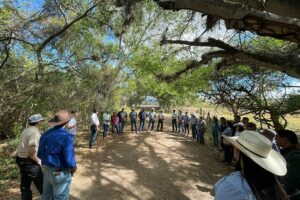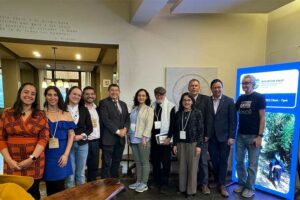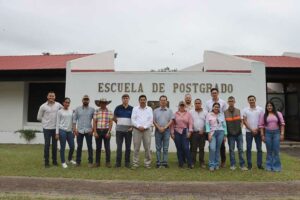CATIE promotes the connection between forests, water, and food at the CTCN National Designated Entities Forum
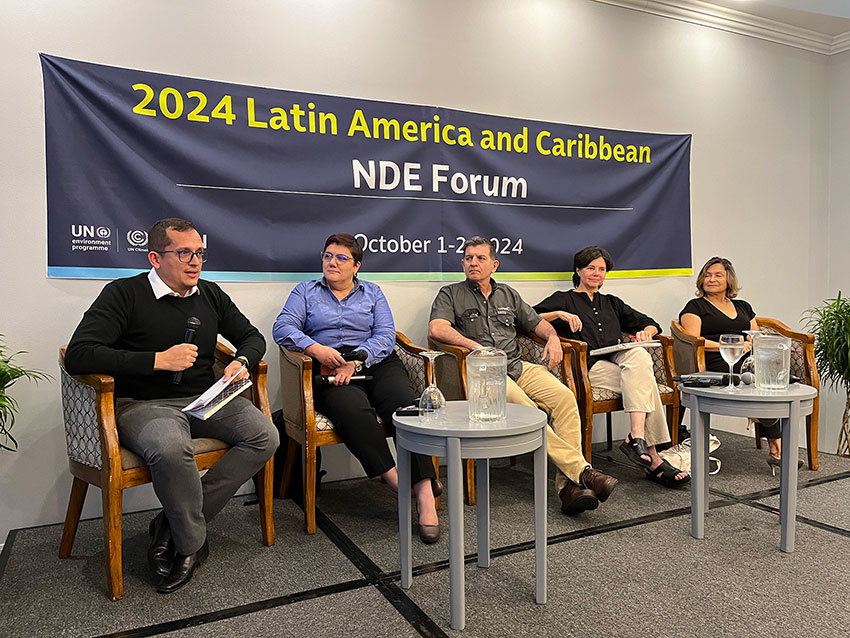
- The ESCALAR Project highlighted how its actions are contributing to improving livelihoods, strengthening climate adaptation, and creating new opportunities for rural youth.
CATIE (Tropical Agricultural Research and Higher Education Center) showcased its leadership in sustainability during the 2024 CTCN (Climate Technology Centre and Network) National Designated Entities Forum for Latin America and the Caribbean, held in San José, Costa Rica.
The forum is held annually, bringing together all national focal points of the CTCN and their strategic partners, with CATIE being one of them. It serves as a space to share experiences and success stories to strengthen networks and learn about ongoing projects aimed at climate action.
The CTCN is the Climate Technology Centre and Network, an organization established under the United Nations Framework Convention on Climate Change (UNFCCC). Its primary role is to facilitate the transfer of sustainable and climate-friendly technologies to developing countries to help them meet their climate change mitigation and adaptation goals.
As part of the event, the institution held a panel titled “The Forests, Water, and Food Nexus for Climate Adaptation,” a presentation in which the Ministry of Environment and Energy of Costa Rica (MINAE) also participated.
The main objective of the panel was to emphasize the importance of adopting a landscape approach to integrate the forestry, water, and food sectors, with the aim of advancing climate adaptation. This methodology, using technological and innovative tools, seeks to maximize the benefits of each sector, optimize resources, and reduce negative impacts, while simultaneously promoting sustainable development.
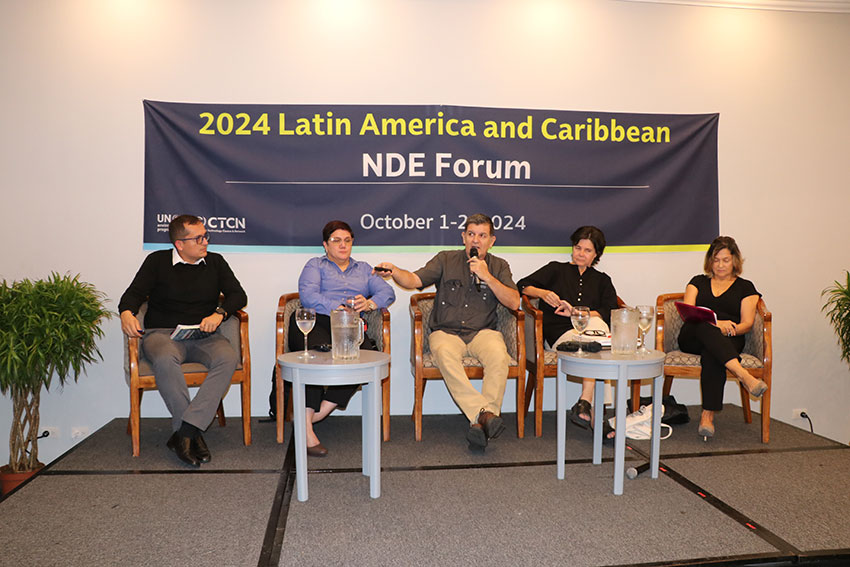
The panel aimed to demonstrate how integrated approaches can be key to achieving both climate and sustainable production goals. Another central aspect was spatial prioritization in planning and resource allocation, a strategy that enables effective interventions in vulnerable areas. Finally, the importance of disseminating innovations and lessons learned was highlighted to scale sustainable solutions at local, national, and regional levels.
Perspectives and Experiences
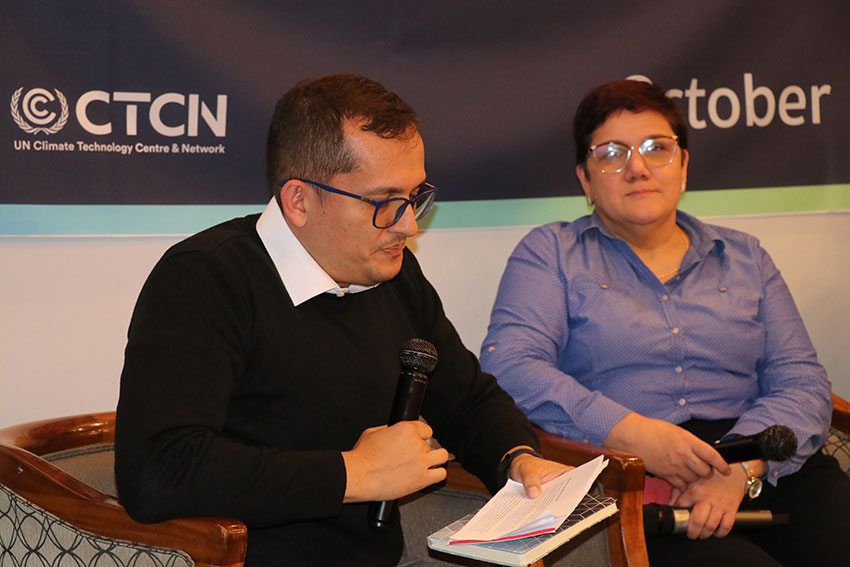
The panel was moderated by Alejandro Solís, director of the SERVIR-Central America project, who introduced the discussion format and presented the panelists. Among the experts, Adriana Bonilla from MINAE presented Costa Rica’s Agro-landscape Strategy, which seeks to integrate these key sectors into the country’s climate policies, pointing out that CATIE is one of the institutions aligned with the interests promoted by the government thanks to the development of practices and dissemination of knowledge in line with this strategy.
Meanwhile, Diego Delgado, a researcher from CATIE’s Forests and Biodiversity in Productive Landscapes Unit, emphasized the importance of the landscape approach as a tool to connect forest ecosystems, water resources, and food production, highlighting the benefits of this interconnection in climate planning.
Claudia Bouroncle, a researcher from CATIE’s Climate Action Unit, also presented tools that help characterize the demand for climate technologies in rural landscapes, identifying opportunities for their implementation.
ESCALAR Project
Leida Mercado, professor, researcher, and leader of the ESCALAR Project: Scaling Climate Change Adaptation Solutions for Resilience and Reducing Migration in the Central American Dry Corridor, shared the project’s progress as an example of how to put into practice the approach and tools presented in the design and implementation of field actions.
The ESCALAR Project, funded by Swedish Cooperation, aims to improve climate adaptation by scaling agricultural innovations for adaptation. During her presentation, Mercado showed how these innovations are being implemented by more than 3,000 families, 6,000 people, with the active participation of young entrepreneurs. These actions are contributing to improving livelihoods, strengthening climate adaptation, and creating new opportunities for rural youth, anchoring them to their communities and discouraging migration to cities or other countries.
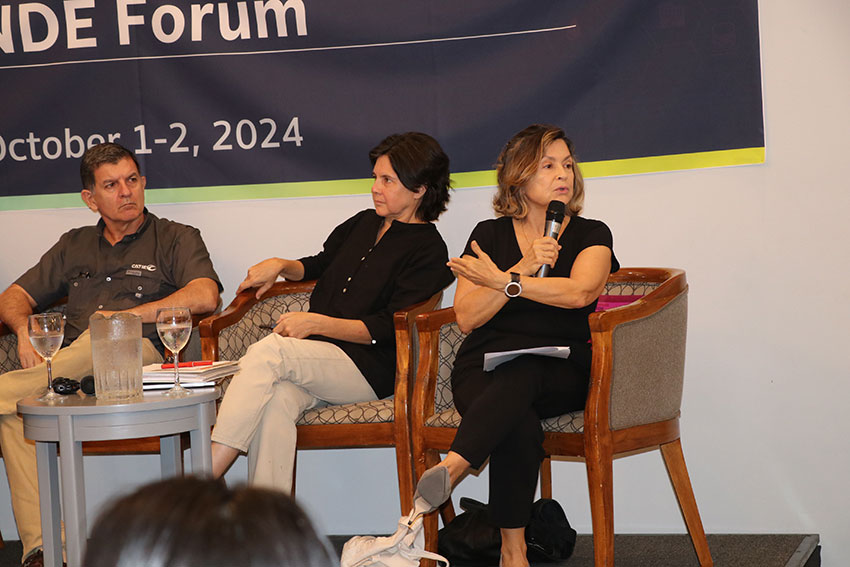
For Mercado, this type of exercise in sharing CATIE’s efforts strengthens knowledge exchange networks among countries in the region, with the aim of continuing to work on the interrelationship between forests, water, and food for climate adaptation. She also stated that CATIE, through its participation in the forum, reaffirms its commitment to sustainable development and climate action, promoting innovative and collaborative solutions to address current challenges.
The panel concluded with an interactive question and answer session, where attendees had the opportunity to delve deeper into the topics presented and discuss the practical impact of these initiatives in their own contexts.
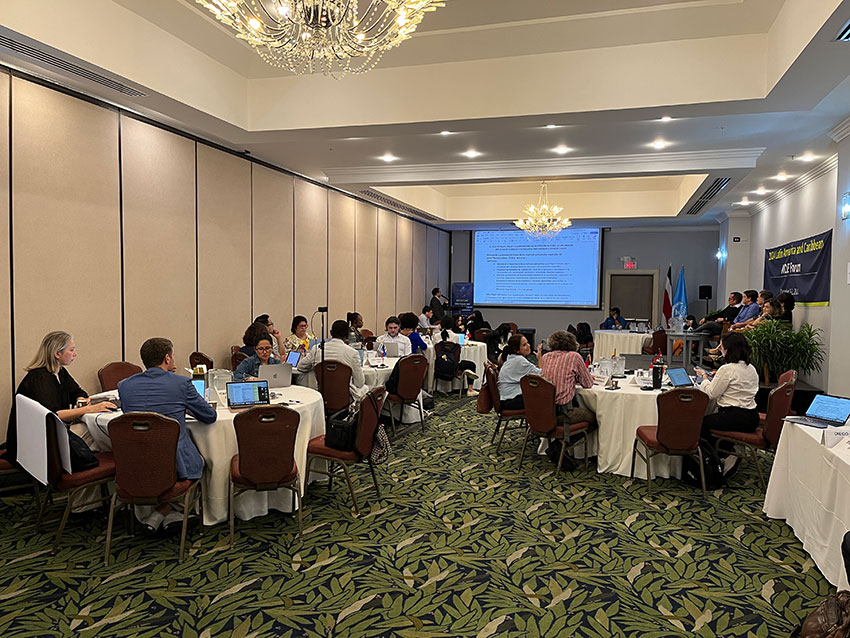
Written by:
Esteban Rodríguez Zamora
Communicator
Information Technology and Communication
CATIE
esteban.rodriguez@catie.ac.cr

